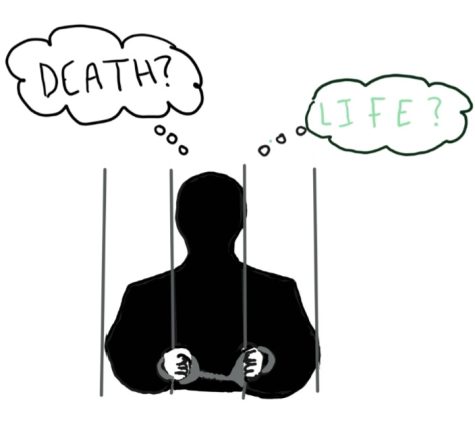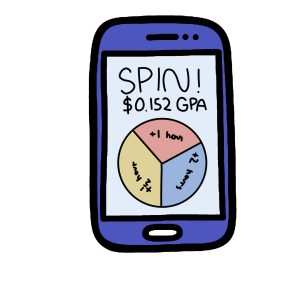On a case-by-case basis
Parkland shooter trial and verdict sparks discussion about capital punishment
November 27, 2022

The Stoneman Douglas High School shooting in Parkland, Florida occurred nearly three years ago. However, in recent events, the school shooter Nikolas Cruz, now 24 years old, received his sentence of life in prison with no possibility of parole. The latest trial raised questions about whether a life sentence was suitable for Cruz or the death penalty. The death penalty has sparked controversy on whether it is morally right or not. There are multiple factors that lead the death penalty to be wrong, but there are situations where it is needed.
Cruz was responsible for the death of 17 people during the shooting, 14 being high school students and three being staff members. He was charged with 17 counts of premeditated first-degree murder and 17 counts of attempted first-degree murder, according to the Death Penalty Information Center (DPIC).
The death penalty, otherwise known as the capital punishment, can take many forms. According to the DPIC, the most common form of the death penalty is the lethal injection which uses one, two or three drug protocols. The three drug protocols injected, in order, sedates the inmate, paralyzes and then finally, stops their heart.
The debate on whether the death penalty is moral or not is on the basis of the Eighth Amendment, which states that “no cruel nor unusual punishment shall be inflicted.” It can be argued that the death penalty falls under the basis of a cruel and unusual punishment. However, the United States (U.S.) Supreme Court case of Gregg v. Georgia established that states could decide whether a person receives the death penalty.
The Supreme Court decision in Gregg v. Georgia distinctively set the death penalty away from the cruel and an unusual punishment. As a result, the death penalty continues to be a viable verdict when the jury sees fit.
Bonita Vista High (BVH) students are not exempt from the possibility of losing their lives in a school shooting, meaning they are at a risk of experiencing what Cruz’s victims are going through. Therefore, the anger that the families are feeling is completely understandable. National Public Radio released a podcast about Cruz’s verdict and how the families of the victims are feeling.
The families, according to ABC news, argue that Cruz’s verdict sends the message that there are ways to evade the death penalty and will allow criminals to take those ways out. Consequently, there are debates on whether the jury’s decision is valid or not. Taking into consideration the real lives that were lost and the life that is currently at stake, there are both sides arguing for and against capital punishment.
People, such as the victims of the Parkland shooter, tend to favor the death penalty. Pew Research Center data shows that 65 percent of U.S. adults favor rather than oppose capital punishment when the person is charged with murder, relative to Cruz’s trial. This is because of the mindset of “a life for a life”, where the murderer’s life is a way to provide closure for the people who were affected.
On the other hand, the death penalty takes a lot of resources. The DPIC states that because death penalty case trials have a tendency to take longer and have more appeals, they are less cost-effective than life sentences. Most of the time, trials where the death penalty is sought out, the cases do not end up being imposed or if so, then eventually get overturned in appeals.
Capital punishment is an option open to interpretation, whether the inmate truly deserves it or not. However, the death penalty is available when suitable and in the case of Nikolas Cruz, many families were left without closure without it.










